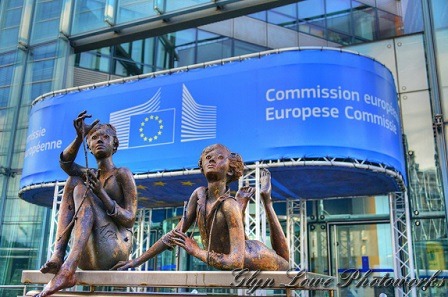The European Ombudsman ruled last week against the practice of unpaid internships at EU’s delegations abroad. The ruling was followed by the first ever Global Intern Strike, organized by local groups in Brussels and other cities.
Following a complaint from a young EU trainee, the European Ombudsman, Emily O'Reilly, recommended last Friday (17 February) that the European External Action Service (EEAS) pay all of its trainees an appropriate allowance to allow greater access for young people of all backgrounds.
The EEAS has almost 800 trainees in its delegations around the world whose full time services are not remunerated. The trainees must today cover all of their costs including accommodation, travel and health insurance.
A trainee who completed a six-month unpaid internship with the EEAS at the EU Delegation to the UN in Geneva said that he had lost 7kg of his body weight during his internship because he couldn't afford all the food he needed.
“With other intern colleagues we went to as many receptions as possible where we could eat for free the left overs. But sometimes they would kick hungry interns out. My hope is that all interns will be paid and recognize their legal status including a health insurance and other basic rights.”
As regards the situation of interns working in the European Commission there seems to be two categories: paid and not paid.
According to replies to parliamentary questions the Commission recruits around 1 300 trainees (stagiares) per year through a five month-traineeship programme. These interns receive a monthly grant of about € 1 100, reimbursement of travel expenses, and health insurance.
In addition, General Directorates in the Commission may decide to accept non-remunerated trainees for periods of 2 – 3 months. There were 200 unpaid trainees on 1 June 2016 according to the figures from the Commission. 10% of interns in MEP offices at the European Parliament are also reported to be totally unpaid.
The European Parliament’s Youth Intergroup is already running a campaign to push MEPs to pay their interns. Today’s Global Intern Strike (20 February) at roundabout Schuman in Brussels was organized by Brussels Interns NGO and various interns groups as part of a wider coalition against unpaid internships.
“Unpaid internships discriminate against people from poorer backgrounds, widen social inequalities, undermine the tax system and create a culture where employers do not train their staff, seeing no reason to invest in them,” says Bryn Watkins, managing member of Brussels Interns NGO.
“This is bad for the whole economy, as skills are wasted and real jobs are replaced by precarious poor-quality internships,” he added.
The Brussels Times
Uneven treatment of interns in the EU – some are paid, others not

Latest News
MAGAZINE
The meaning of Brusselization